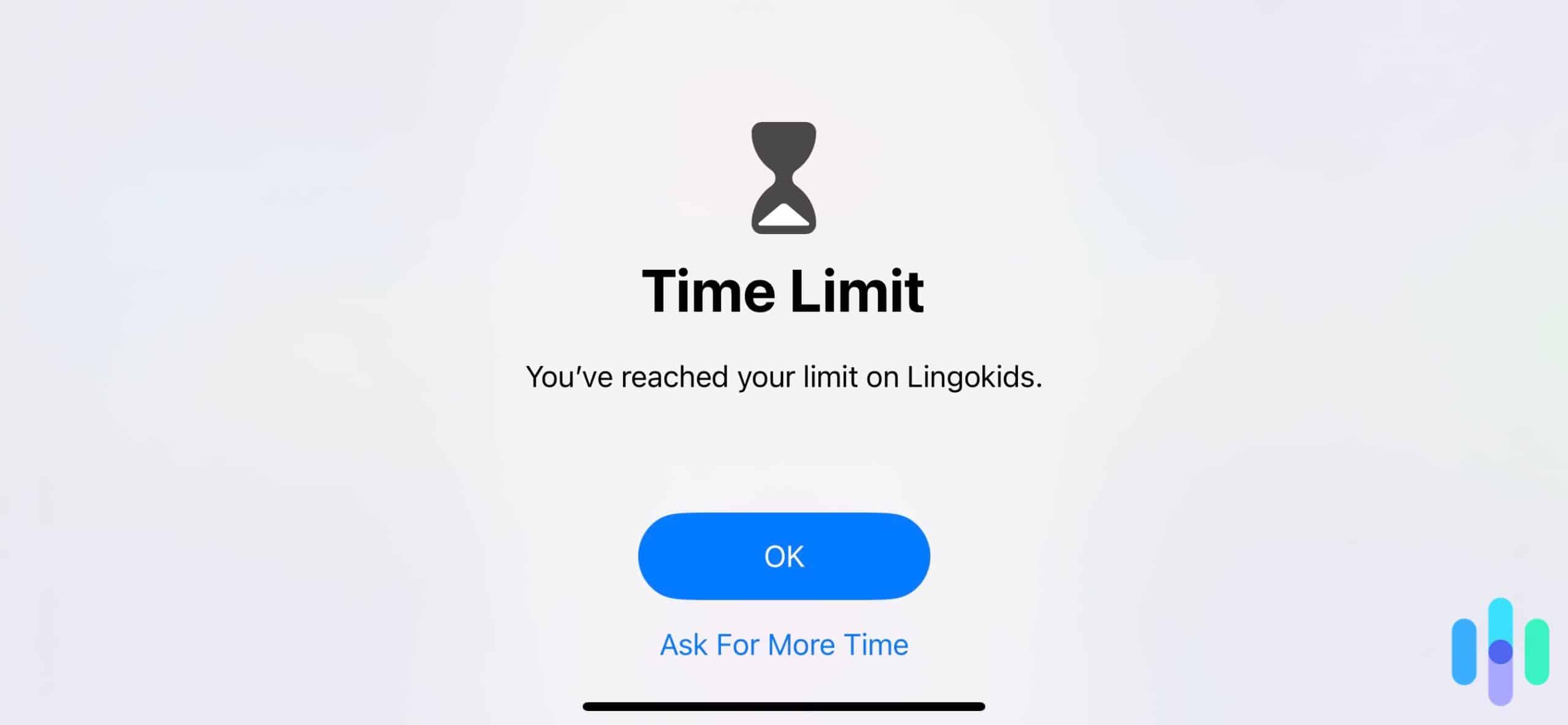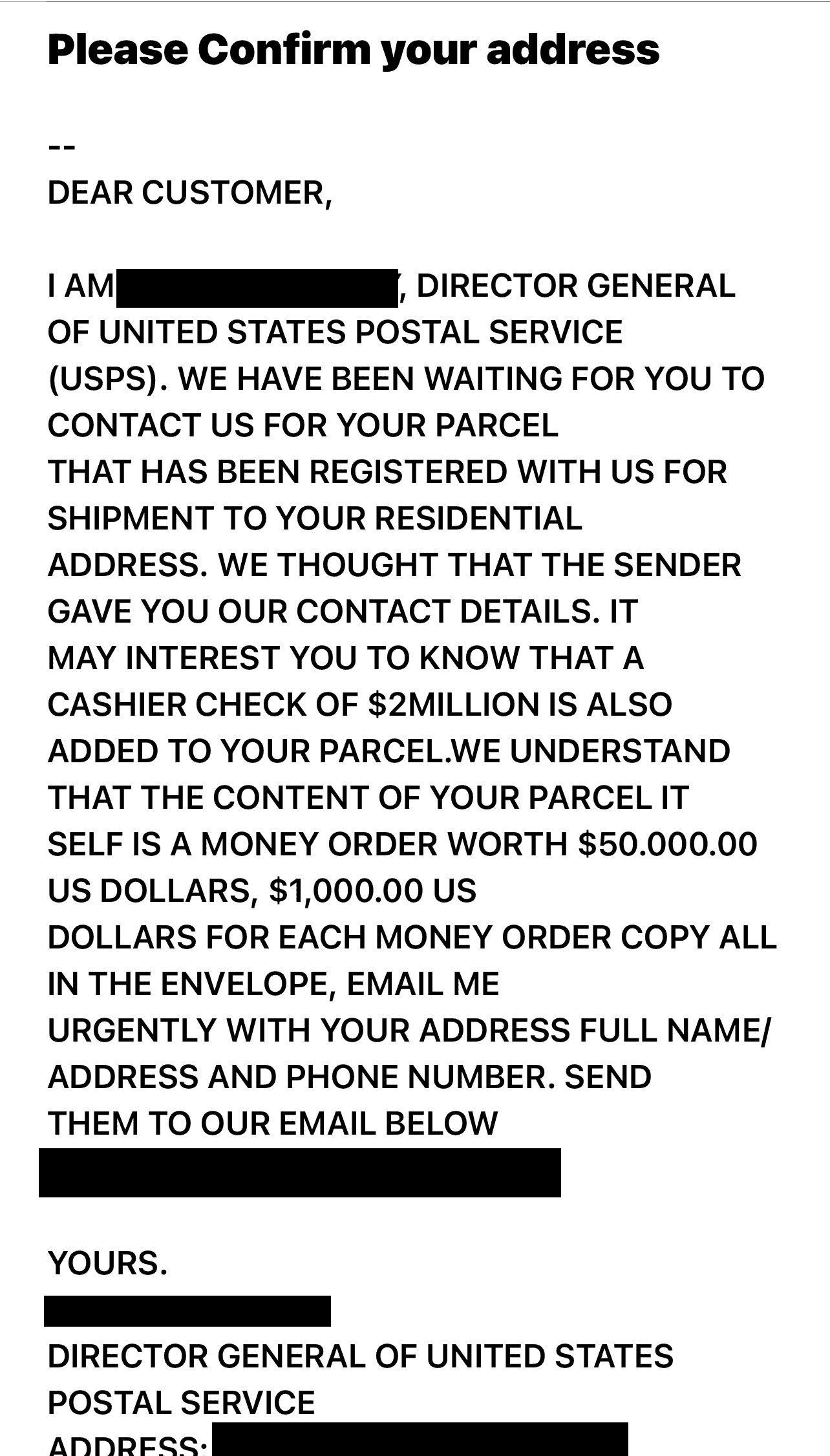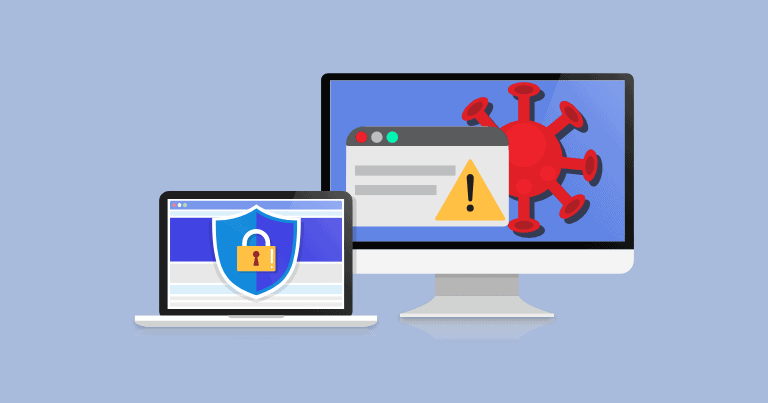If you’re still on the fence about whether or not downloading ChatGPT is safe, we’ve got all the answers. As cybersecurity experts who use ChatGPT consistently, we dug deep into its security practices, data collection, and possible risks, as well as how to safely use it. In this guide, we’ll go over ChatGPT’s security practices, the data it collects, its privacy policy, and its downsides.
Overall, we found ChatGPT to be more useful than harmful. However, there are several risks regarding security, privacy, and misleading information to consider. Ultimately, the decision to use it is yours. Keep reading our overview of ChatGPT’s safety to see how it may or may not benefit your studies, work, life, and more.
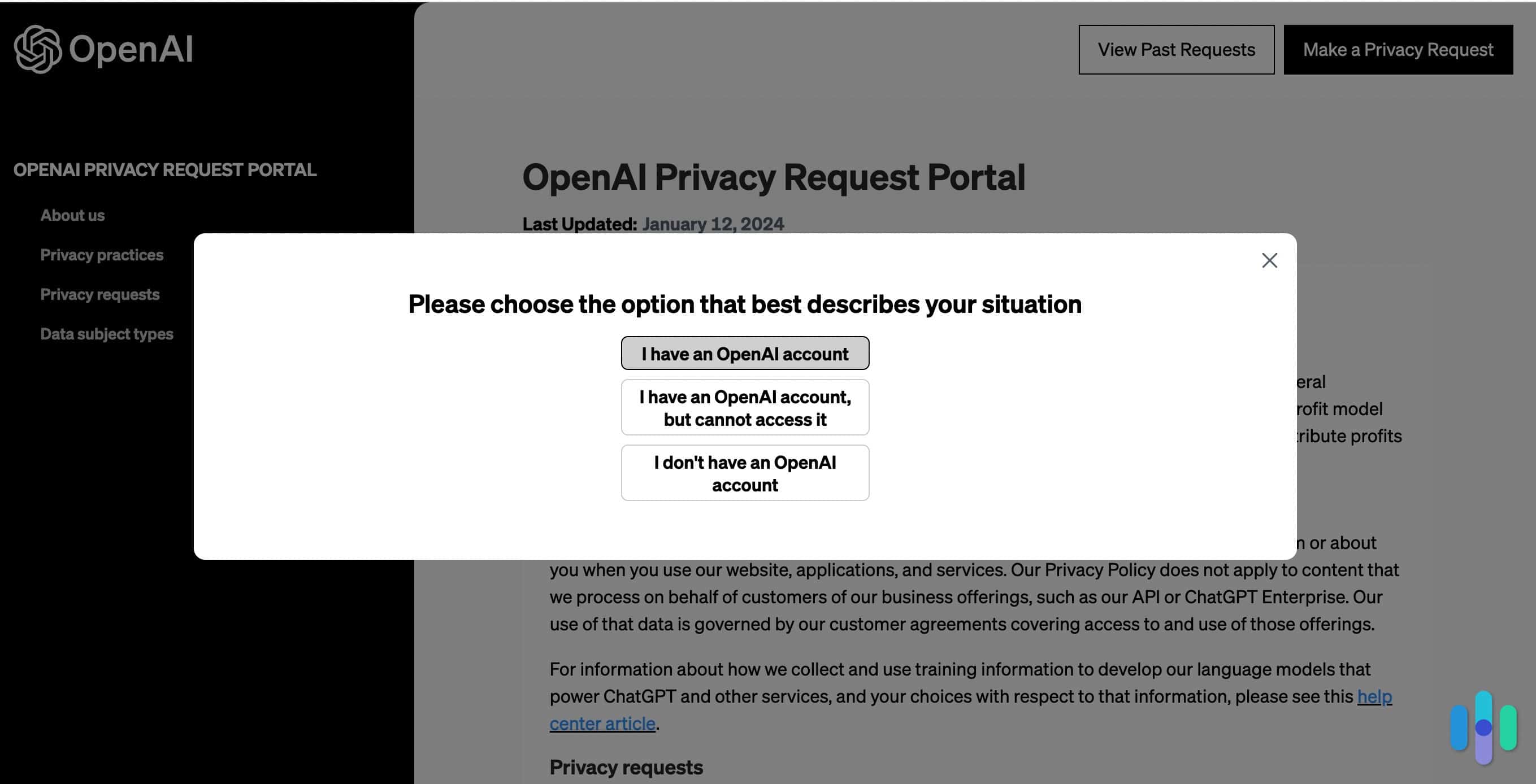
FYI: Read our ultimate guide to chatbot scams and security to avoid getting conned. This article covers the best ways to protect your information both online and offline.
ChatGPT Security Practices
ChatGPT prioritizes safety for all its users. It takes multiple precautions to ensure privacy and security. ChatGPT’s parent company, OpenAI, is behind most of these security practices to mitigate any risk associated with all its AI models.
Here are a few of the safety practices users can expect from ChatGPT:
- Moderating content: OpenAI ensures it moderates content on ChatGPT using various techniques like using algorithms to prevent harmful content, using humans to review flagged content, user reporting, enforcing community guidelines, and complying with laws and regulations for content moderation. ChatGPT also filters out hate speech, misinformation, and any explicit content.
- Regular security audits: Security audits are regularly conducted at ChatGPT thanks to OpenAI. These audits usually include in-depth assessments of the chatbot’s systems to mitigate and source possible security risks. Some of the things they focus on include vulnerability scanning, ethical hacking to determine effectiveness, access control reviews, data protection, and third-party risk management.
- Strict access controls: To further enforce security, ChatGPT’s strict access controls involve several protection layers that allow only authorized users to access sensitive data. These measures include API keys, role-based access control, access monitoring, encryption, and authentication procedures.
- Encrypted communication: Like several online services, ChatGPT uses encrypted communication to ensure user privacy and security. This means any communication and user interaction is safeguarded to protect data transmission from falling into the wrong hands. This encryption also works against potential interception.
- Ongoing monitoring: OpenAI has several methods in place to continuously monitor its systems for suspicious activity. Should anything arise, it also has rigorous mechanisms planned to respond to any security mishaps.
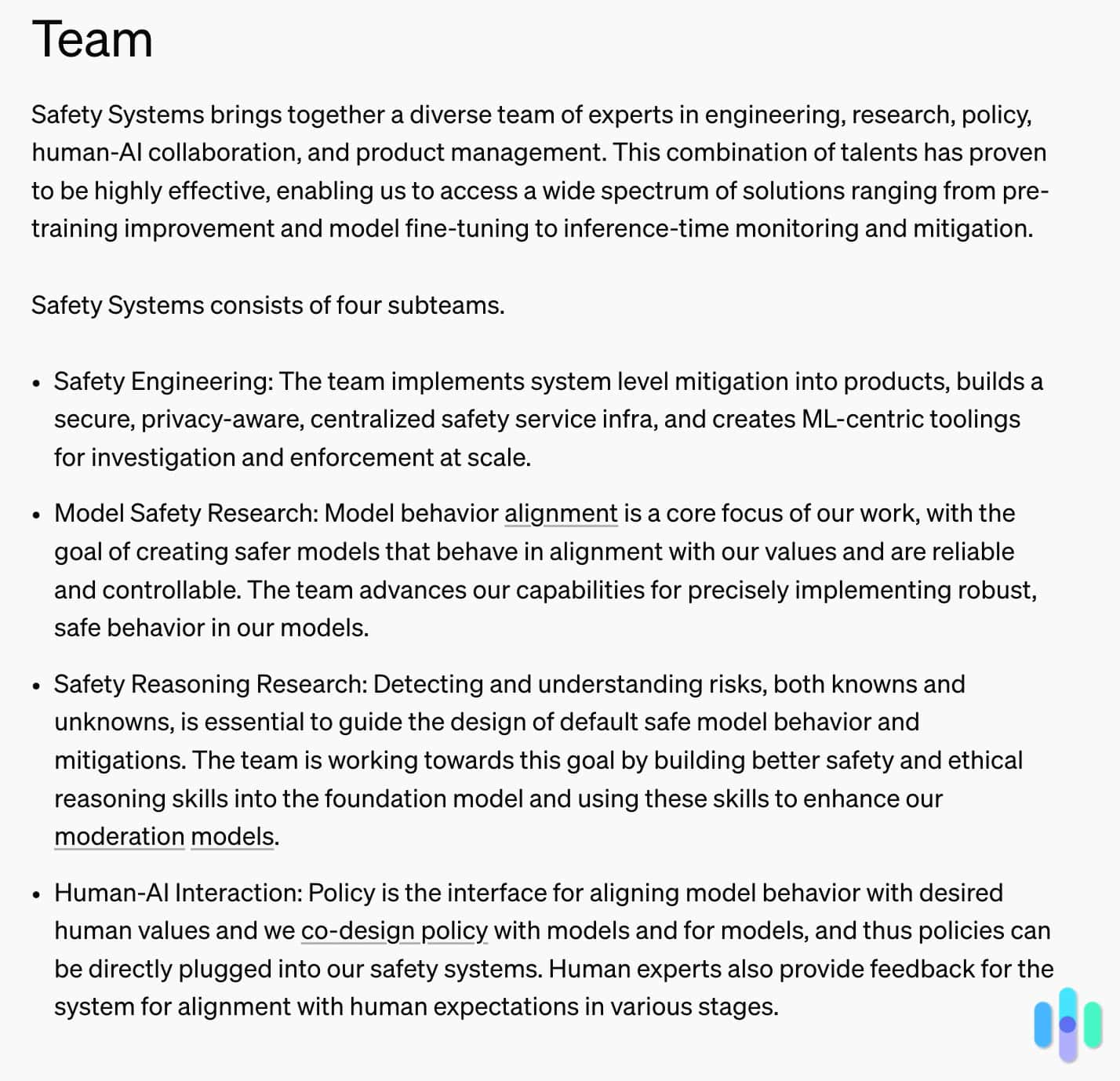
The Facts About ChatGPT
| Who founded and developed ChatGPT? | ChatGPT was developed by the research lab OpenAI, which was founded by Elon Musk, Sam Altman, Greg Brockman, Ilya Sutskever, Wojciech Zaremba, and John Schulman. |
|---|---|
| When were ChatGPT and OpenAI founded? | OpenAI was founded in 2015. The GPT architecture on which ChatGPT is based was introduced to the public in a white paper in 2017. |
| How many people use ChatGPT? | ChatGPT has over 100 million users. |
| How much revenue does it make? | OpenAI, the maker of ChatGPT, generated $1.6 billion of revenue in 2023 alone. |
Does ChatGPT Collect Your Data?
You may be wondering if ChatGPT collects your data. And, if it does, what kinds and where does it all go? ChatGPT, like most online tools, collects and shares some of your data. In our experience, we found that oversharing puts you at greater risk of getting your information leaked. So, before going any further, just make sure you keep sensitive details private. After all, there’s no real need to get that deep with ChatGPT.
So, what do ChatGPT and OpenAI collect in terms of data? Well, they gather various types of information, including details you provide and details it receives automatically from how you use the service.
The information you provide can include account information, user content, communication information, social media details, and other data points generated from participating in surveys or events.
When it comes to the information it gathers from user experience, that can include how often you interact with the chatbot, when you visit, and how you use the service. Since this is a bit more complex and detailed, here is an overview of this type of data collection:
- Cookies: OpenAI uses cookies to improve its user experience. Ultimately, it’s up to you whether to accept or reject all cookies. It’s important to note that refusing a cookie may prevent you from using certain features.
- Log data: This includes information that your device automatically pings to OpenAI’s services. That information is typically made up of your network provider, IP address, browser type, and the date and time of your interactions.
- Analytics: OpenAI uses various analytics tools to help understand how its services can best be leveraged to enhance user experience.
- Usage data: This data is automatically gathered and includes how you use its services, the content you engage with, your time zone, device information, and network connection.
- Device information: This includes your device type, device name, operating system, the type of browser you’re using, and any other information about your device type.
FYI: Curious about what type of data companies collect from you? Read our guide to stay informed on the type of information that’s gathered from big tech companies.
ChatGPT’s Privacy Policy
A great way to stay informed on the safety of ChatGPT is by reviewing and understanding its most current privacy policy. As security experts, we dove into the language model’s latest privacy policy version, which was updated on Jan. 31, 2024, and found it to be transparent. OpenAI delineates how ChatGPT collects personal information, the types of data it gathers, and how it uses personal information, as well as user rights, state disclosures, security information, and other resources.
Risks of Using ChatGPT
When using new technology you may be unfamiliar with, it’s important to be aware of the potential hazards involved. Using ChatGPT – or any other AI language model – may be accompanied by some risks, including misinformation, lack of context, relying on it too much, and user privacy.
In our personal experience using ChatGPT, we’ve found a few things to look out for before using this chatbot:
- Misinformation: AI chatbots or language models like ChatGPT can come up with responses and text that may be outdated, incorrect, misleading, or biased. When this happens, it opens doors to people spreading misinformation unknowingly. On a larger scale, this can be incredibly harmful. Instead of taking ChatGPT’s content at face value, it’s incredibly important to fact-check and cross-reference any information.
- Undetected biases and stereotypes: Piggybacking on the misinformation point, undetected biases and stereotypes are other risks to consider before using ChatGPT. This is not uncommon, given that these language models are trained and developed using large datasets, which may present biases. OpenAI constantly updates ChatGPT to search and correct for these things, however, it’s far from perfect. Paying attention to any stereotypical language can help prevent misrepresentation and disinformation from spreading.
- Lack of contextual understanding: Common sense and context clues are two areas in which AI language models, like ChatGPT, lack understanding. These reasoning abilities are a bit difficult for it to pick up, which may result in misinterpretations or inappropriate responses.
- Manipulation: As technology evolves, so do scams and scammers. Unfortunately, AI chatbots like ChatGPT are often used to replicate and create malicious or harmful text. This type of content includes hate speech, spam, phishing, and harassment.
- Privacy: Security around ChatGPT is a major concern for many people – whether they are current users or are considering downloading the language model. When sharing personal information with the chatbot, that data could potentially be stored, accessed, and used by unauthorized individuals. This is a risk that should not be unconsidered when using any language model. For your safety, it’s best to refrain from sharing any sensitive information on any AI language model.
- Dependency and overreliance: Becoming overly dependent on anything can be seen as an unhealthy trait. When it comes to language models, turning to them for every decision or solution may result in oversights, errors, lack of growth, and stunted learning. It’s crucial to check in with yourself and those you supervise to ensure ChatGPT is used as an aid and not a crutch.
Pro Tip: Whether waiting to board a plane or catch a train, we make sure not to use our mobile hotspot. Learn more about the safety of using mobile hotspots to stay better protected
How to Stay Safe When Using ChatGPT
Although ChatGPT does a great job of taking precautions around user safety, there are risks to using this AI tool. When using this resource, it’s crucial to do it safely. So, here are a few safety tips to consider and to remain secure while using this chatbot:
- Refrain from sharing private information. Remember, your data and the details you provide ChatGPT with may be shared. So, avoid feeding it personal or sensitive information that you want to keep confidential.
- Review and understand the privacy policy. Go through OpenAI’s privacy policy1 to understand how to stay protected. Not only does it tell you how your data is shared, but it also explains how to adjust what is collected.
- Don’t immediately believe the information. Always cross-reference responses with a reliable source to ensure a response is correct.
- Report issues and concerns. If you come across any bugs, glitches, biases, inappropriate responses, or issues when using ChatGPT, you should report it immediately. To do so, head to help.openai.com and select the live chat option in the bottom right-hand corner.
- Use a strong password. A birthday or pet’s name is probably not the most secure password. Remember, your information is as safe as your password is. Using a mix of more than eight or nine characters, numbers, symbols, and lower and uppercase characters is critical. Using a password generator is also a great solution.
FYI: Use our password generator to create the most secure password. Doing this will ensure you stay protected against scammers and hackers
Bottom Line
When used correctly, ChatGPT can be an excellent source for gathering information and adding efficiency to different processes. For the most part, we believe it’s a good idea to adapt to using AI tools, as many benefits come with them. Some pros include automation, cutting down on research time, introducing versatility in your findings, and sparking inspiration and creativity. However, it’s also important to be aware of the risks.
ChatGPT is not a perfect tool. Many times the responses it generates can contain misleading or incorrect information. There are also undetected biases and stereotypes, missing context, and scamming or privacy concerns. To get the most out of this AI tool, keep sensitive information to yourself and always cross-check its responses with reliable sources. In this case, being cautious can keep you safe and allow you to enjoy all the benefits of ChatGPT without jeopardizing your safety.
Frequently Asked Questions About ChatGPT
-
Does ChatGPT keep your information confidential?
ChatGPT does not keep your information confidential. Everything you share with the chatbot has the potential to be used in one form or another. You can disable your chat history, but that does not guarantee confidentiality.
-
Is it safe to use ChatGPT at work?
This will vary depending on the workplace. As AI tools become synonymous with efficiency, some employers may allow the use of ChatGPT during and for work.
Keep in mind that the information shared with the free version of ChatGPT is logged and may be shared with different individuals. There is a business version of the chatbot, which has added security and privacy. Either way, it’s best to confirm with your employer before using any version of this AI tool.
-
Is ChatGPT safe for kids?
Users over the age of 13 are allowed to create an account on ChatGPT. This doesn’t mean it’s inherently safe for kids to use. The same risks mentioned in this article apply to users of any age, but perhaps more so to a younger, more susceptible individual. Parents should monitor how younger children use this tool, as some content may not be suitable for kids. If you’re concerned about keeping your child from viewing negative content online, read our post on how to make a laptop kid-safe.
-
Can you use ChatGPT at school?
ChatGPT can be a useful tool at school in terms of researching and gathering information. However, students should always cross-reference responses with reliable sources to avoid being misled.
-
Is it possible to delete your ChatGPT history?
Yes. Users can delete their chat history on ChatGPT. To do so, sign in to your account, click the account icon, select “Settings,” then “Data control,” then “Clear chat history,” and finally “Confirm.”




